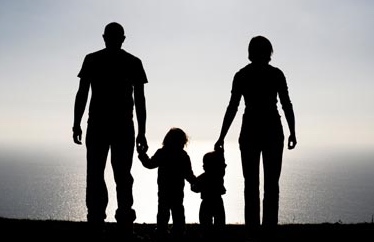If a hiker were lost in the backcountry and you were able to rescue them, would you feel morally obligated to do so? Would the hiker be similarly obliged to take adequate precautions against getting lost?

In recently published research, Assistant Professor of Philosophy Tina Rulli grapples with the ethics of risk and rescue, and their implications for public policy.
“When one can reduce the serious burdens that one imposes on others . . . one ought to do so, at least when the costs to oneself are minimal.” In “The Duty to Take Rescue Precautions,” Rulli and co-author David Wendler argue that the moral obligation surrounding a rescue scenario goes beyond the duty of the person providing assistance and extends to the one requiring it. By taking precautions, the hiker can minimize both the threat to themselves and the risk of needing costly assistance that diverts resources from other vital activities.
As Rulli explains, “sometimes individuals have duties to take rescue precautions. They have duties to minimize the chances of needing to be rescued.”
Rulli’s argument has significant implications for public policy. While a physician has a duty to provide emergency and acute care regardless of a patient’s ability to pay, some uninsured patients, Rulli believes, should also be bound by their own moral duty to purchase health insurance. “Merely living out our lives in the company of [others],” she writes, “entails on us a range of obligations.”
Obliged to be insured
Although the cost of insurance is prohibitively expensive for some, many Americans can afford insurance without great hardship but still fail to purchase it. The National Bureau of Economic Research estimates that one quarter to three quarters of the uninsured could afford to purchase coverage. According to the Census Bureau, 20 percent of the uninsured have household incomes of greater than $75,000, while 10 percent of the uninsured earn over 400 percent above the federal poverty level.
In a 2012 paper on this subject, published in the Journal of American Medical Association, Rulli provided a philosophical argument for a citizen’s moral obligation to purchase health insurance.
This timely publication coincided with the Supreme Court’s ruling on the constitutionality of the Affordable Care Act, in which five justices concluded that the requirement for nearly all Americans to obtain minimum health insurance coverage or face a penalty is constitutional, falling within Congress’ power to “lay and collect taxes.”
Based on Rulli’s ideas about the duty to take rescue precautions, there is a clear moral basis for requiring citizens to purchase health insurance, since U.S. physicians have a moral and legal obligation to provide acute and emergency care regardless of a person’s insurance status. One of Rulli’s most significant claims is that waiving the right to be rescued simply through negligence, or failure to take precautions, does not eliminate the duty to rescue.
“It may be the case that a person autonomously chooses to forgo health insurance, knowing full well that she risks not having medical care in the case of an accident,” she says. “It is still the case that clinicians have a duty to provide emergency and acute care to her, despite her negligence.”
Preventive care
The vast majority of uninsured patients are unable to pay for out-of-pocket health care procedures. These expenses are often “passed on to health care providers, hospitals, insured individuals who absorb these costs in their premiums, and taxpayers. Every year, hospitals incur tens of billions of dollars in bad debt.”
According to the Centers for Disease Control and Prevention, Americans utilize preventive services at half their recommended rate. The Affordable Care Act makes preventive care more accessible by requiring private health plans to cover recommended services such as well-woman visits, domestic abuse screening, and support for breastfeeding, without charging a deductible or copayment.Health insurance not only helps cover the cost of medical expenses but also lessens the long-term burden on public health resources. Through access to preventive care measures, clinicians can help detect and prevent health issues before they become life-threatening and costly.
Duty to adopt?
 Rulli’s work focuses on a variety of topics related to the duty to rescue and the implications of this duty for individual actions. In the field of bioethics, she is currently investigating how clinical researchers in low and middle income countries ought to interpret their duties to rescue, “given the sheer amount of critical need they encounter in their work.”
Rulli’s work focuses on a variety of topics related to the duty to rescue and the implications of this duty for individual actions. In the field of bioethics, she is currently investigating how clinical researchers in low and middle income countries ought to interpret their duties to rescue, “given the sheer amount of critical need they encounter in their work.”
She has also examined the moral significance of the genetic relationship, arguing for a duty to adopt children rather than procreate. Her paper “Preferring a Genetically-Related Child” in the Journal of Moral Philosophy considers the comparative value of procreating versus rescuing existing lives.
Rulli asks, “Is there a duty to adopt rather than create a child?” In doing so, she makes the case that genetic preference and relatedness are morally insignificant factors in the care of a child. She sees this argument as a natural extension of the much broader duty to rescue those in critical need.
Tina Rulli joined the UC Davis Department of Philosophy in 2014 and has taught a wide variety of courses including Population Ethics, Bioethics, Biomedical Ethics, and Normative Ethics. Learn more at her website and faculty profile page.
— Rebecca Egli
